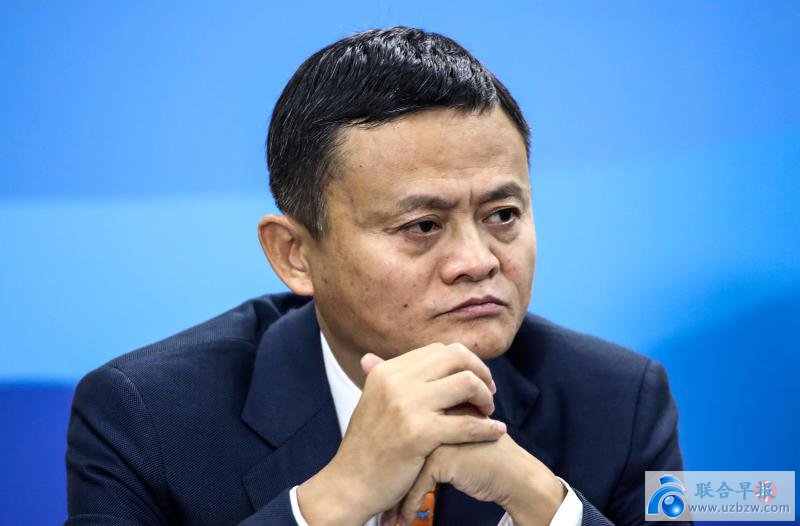 Jack Ma, the founder of Chinese e-commerce giant Alibaba, announced his handover on Monday (10th).(File photo Reuters)
Jack Ma, the founder of Chinese e-commerce giant Alibaba, announced his handover on Monday (10th).(File photo Reuters)
Ma Yun, the founder of Chinese e-commerce giant Alibaba, announced the news of his handover on Monday (10th), which has attracted attention from all walks of life in the past few days, especially because the 54-year-old Ma Yun is in his prime of life and chose to fade out of the company at the peak of his career.Management is a bit surprising, and it has once again aroused public opinion to reflect on the inheritance of Chinese private enterprises.
Ma Yun said in the open letter that stepping down as chairman of the board of directors is a plan he has carefully considered and carefully prepared for 10 years, marking the completion of Alibaba's corporate system upgrade from relying on personal characteristics to relying on organizational mechanisms and talent culture.
He knows that the sustainable development of the company cannot rely on only a few founders, and from the perspective of ability, energy and physical strength, it is impossible for anyone to serve as the CEO and chairman of the company forever.In his view, the key to the long-term and healthy development of an enterprise lies in the governance system, cultural system and continuous talent echelon.
Therefore, in the past 10 years, Jack Ma has been exploring and practicing, being brave in innovation in company management, and building various talent cultivation systems.He said: The most remarkable thing about Alibaba today is not its business, scale and achievements. The most remarkable thing is that we have become a truly mission-driven company.The new partnership mechanism we have created, our unique culture and a talent echelon full of talented people have laid a solid institutional foundation for the company's inheritance.
This system has successfully cultivated successor talents for Alibaba, allowing Jack Ma to step down as CEO as early as 2013, and now it has given him the fundamental confidence to further fade out when he is young and strong.
The day Ma Yun announced the handover news was Teacher's Day.Some media described him as fulfilling his long-cherished wish of being a teacher ahead of schedule, and now he has become a teacher of Chinese enterprise inheritance. He taught entrepreneurs an Ali inheritance class, showing the demeanor of a teacher, and this class was even hailed as a textbook level.
It is true that the talent cultivation culture and system created by Ma Yun in Alibaba are still rare among Chinese private enterprises.Due to the traditional concept that blood is thicker than water, many first-generation entrepreneurs still prefer their children to inherit their father's business.
However, an earlier survey found that only 30% to 40% of the second-generation heirs hope to take over the family business, and the remaining 60% to 70% hope to continue the operation of the family business by introducing professional managers or only serving as shareholders, or even resell and exitenterprise.
Throughout the history of family businesses around the world, the probability of a successful inheritance is also very small.A family business study in the United States a few years ago showed that less than 20% of family businesses were actually passed on from the first generation to the second generation, 70% of family businesses failed to pass on to the next generation, and nearly 90% failed to pass on to the next generation.By the third generation, only 3% can still operate after the fourth generation.
Enterprise inheritance is obviously not easy. It is foreseeable that many private enterprises in China may have no successors in the next few years.In the reality that many companies cannot get rid of the problem of inheritance that has been neglected for a long time, the institutionalized inheritance plan that Jack Ma has established over the years is of great significance.
Such an inheritance system can not only solve the succession dilemma step by step, but also allow young employees to see possible career development directions or promotion prospects, increase the company's attractiveness to talents, and benefit the company's long-term development.
In recent years, private enterprises have developed into the main force driving China's economy, and it is even more urgent to solve the problem of succession and cultivate the next generation of talents.According to last year's New Fortune 500 Rich List, private entrepreneurs over the age of 50 in China accounted for 67%, which means that nearly 70% of enterprises need to find successors.In other words, in the next five to 10 years in China, 3 million private enterprises will face the problem of succession.
Among them, about 90% are family-owned, and the proportion of their total economic output in the GDP has exceeded 60%.Therefore, the succession and replacement of private enterprises is no longer purely a matter of the survival of the enterprises themselves. To a certain extent, it is also related to the overall development of the Chinese economy, which should be taken seriously.



